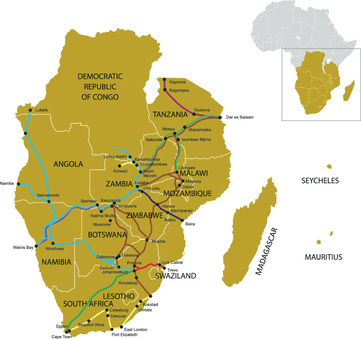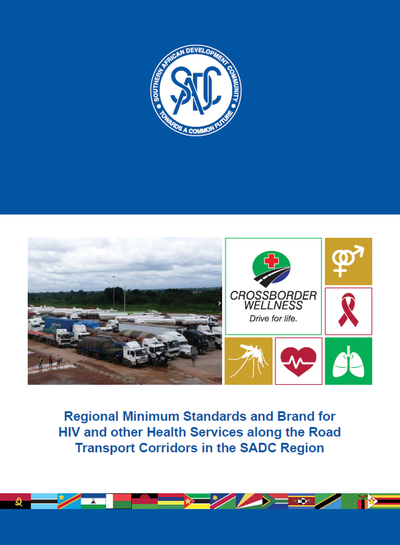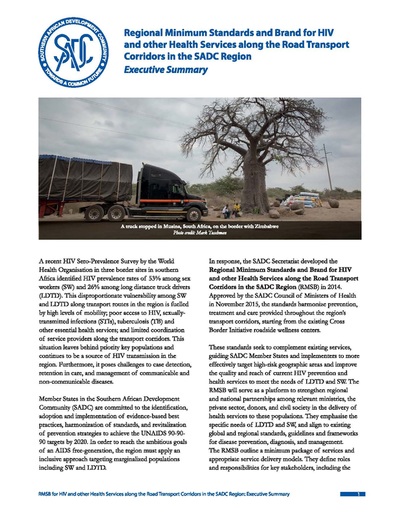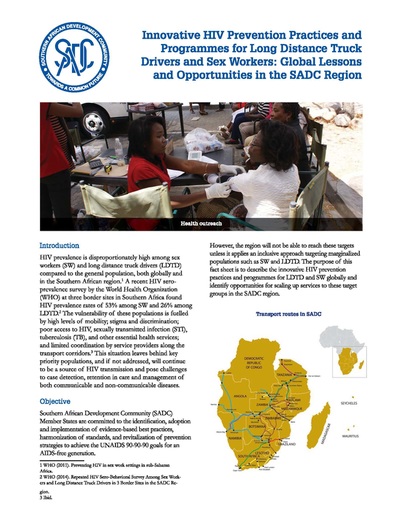Transport routes and road corridors along Southern Africa have facilitated trade, commerce, and regional infrastructure and supported the economic development and integration of the region. However, expanded mobility and cross-border trading are significant drivers in the transmission of communicable diseases and have contributed to increased HIV prevalence rates among key populations and communities living in the region. To support a strengthened and coordinated response to the unique public health challenges this presents, the Southern African Development Community (SADC), approved and released the Regional Minimum Standards and Brand for HIV and other Health Services along the Road Transport Corridors in the SADC Region (RMSB) in November 2015.
The RMSB outline a minimum package of services and standards for service delivery to more effectively target high-risk geographic areas and key populations, such as long distance truck drivers and sex workers. The RMSB define roles, responsibilities, and management mechanisms to improve the quality and reach of current prevention and health services for HIV and other important health conditions, including tuberculosis, sexually transmitted infections, malaria, hypertension, diabetes, and sexual and reproductive health services including family planning.
The RMSB outline a minimum package of services and standards for service delivery to more effectively target high-risk geographic areas and key populations, such as long distance truck drivers and sex workers. The RMSB define roles, responsibilities, and management mechanisms to improve the quality and reach of current prevention and health services for HIV and other important health conditions, including tuberculosis, sexually transmitted infections, malaria, hypertension, diabetes, and sexual and reproductive health services including family planning.
 Transport routes in SADC
Transport routes in SADC The standards are endorsed by Member State Ministries of Health and Transport, and represent collaborative partnership through a highly consultative process involving key stakeholders and technical experts from Member States, development partners, United Nations agencies, regional transport federations, worker groups, regional and national associations of sex workers, and implementing partners that provide health services to long distance truck drivers, sex workers, and communities living along road transport corridors in the region. Catalytic technical and financial support was provided in partnership by USAID's Africa Bureau and their project African Strategies for Health (ASH), and USAID's Regional HIV/AIDS Program and their project, Building Local Capacity for Delivery of HIV Services in Southern Africa (BLC), both implemented by Management Sciences for Health.



 RSS Feed
RSS Feed